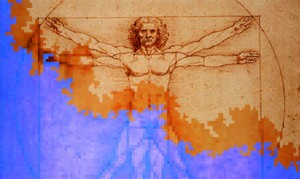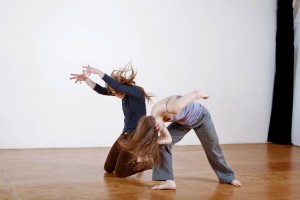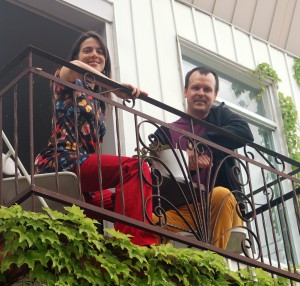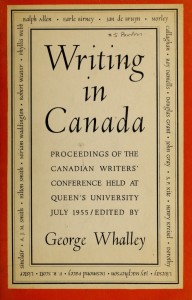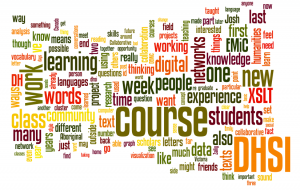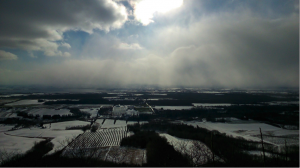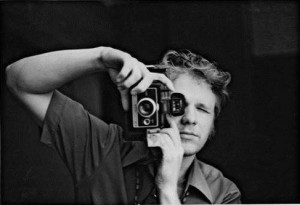Archives
Archive for the ‘News and Events’ Category
August 20, 2014
Upcoming CFPs and DH Events
LIBERAL ARTS SCHOLARSHIP AND TECHNOLOGY SUMMIT
Penn State is hosting its annual Liberal Arts Scholarship and Technology Summit (LASTS) next month, an event that brings together liberal arts faculty, graduate students, librarians and education technologists to share and explore digital pedagogy and scholarship. Co-sponsored by the College of the Liberal Arts and the University Libraries, the event includes workshops, presentations, breakout sessions, and featured keynote speakers.
LASTS will take place on Friday, September 12 and Saturday, September 13 in the Paterno Library’s Foster Auditorium.
If you would like to participate, please see our current call: http://sites.psu.edu/lasts/present/
BIRDS-OF-A-FEATHER GATHERING, SYDNEY, AUSTRALIA
Call for Proposals
Research Foundations for Understanding Books and Reading in the Digital Age: Emerging Reading, Writing, and Research Practices
An INKE-hosted Birds-of-a-Feather Gathering
8 December 2014 | State Library of New South Wales | Sydney, Australia
Proposals due: 15 September 2014
Digital technology is fundamentally altering the way we relate to writing, reading, and the human record itself. The pace of that change has created a gap between core social/cultural practices that depend on stable reading and writing environments and the new kinds of digital artefacts – electronic books being just one type of many – that must sustain those practices now and into the future.
This gathering explores research foundations pertinent to understanding new practices and emerging media, specifically focusing on work in textual and extra-textual method, leading toward:
· theorizing the transmission of culture in pre- and post-electronic media;
· documenting the facets of how people experience information as readers and writers;
· designing new kinds of interfaces and artifacts that afford new reading abilities;
· conceptualizing the issues necessary to provide information to these new reading and communicative environments;
· reflecting on interdisciplinary team research strategies pertinent to work in the area;
· and much more.
Presentations addressing these and other issues in relation to emerging and/or transforming (digital) infrastructures, in regional, national, and international contexts are welcome.
We invite paper proposals that address these and other issues pertinent to research in the area. Proposals should contain a title, an abstract (of approximately 250 words, plus list of works cited), and the names, affiliations, and website URLs of presenters; fuller papers will be solicited after acceptance of proposals, for circulation in advance of the gathering to registered participants. We are pleased to welcome proposals in all languages in which our community works, and note that the chief working language of past gatherings has been English. Please send proposals on or before 15 September 2014 to Alyssa Arbuckle at alyssaarbuckle@gmail.com.
CALL FOR CHAPTERS: READING MODERNISM WITH MACHINES
From data mining and visualization to mapping and topic modeling and beyond, digitally enhanced studies of literature and culture offer a series of computational methodologies for use in literary and cultural criticism. Using these approaches, scholars can ask new questions of literature and culture, while also intervening in existing debates. And with the publication of a variety of anthologies, handbooks, and treatises addressing the Digital Humanities in general, we now have the opportunity to focus attention on specific periods and movements in literary and cultural history. Reading Modernism with Machines aims to bring together the most rigorous and exciting modernist criticism to have been conducted using computers.
Each submission should offer a case study of modernist literary and cultural analysis conducted using a computational approach. While methodologies should be outlined, the majority of each submission should be reserved for humanistic discussions, which should be based on, or supplemented by, any electronic analyses. Submissions will be judged based on 1) the innovation and sophistication of the digital tools used in the analysis, 2) the essay’s broader impact on modernist studies, and 3) the degree to which computational analysis and literary/cultural interpretation merge cohesively.
Submissions: Initial proposals of ~500 words are due by September 31st, 2014
(Where appropriate, sample graphics, tables, tools, or datasets may also be submitted with proposal.)
Final submissions of ~6,000 – 8,000 words are due by January 31st, 2015
Submissions should be sent to James O’Sullivan (jco12@psu.edu) and Shawna Ross (smross3@asu.edu)
NEW PROJECT: GRADUATE TRAINING IN THE 21ST CENTURY
MediaCommons and #Alt-Academy have just launched a new project, Graduate Training in the 21st Century, which focuses on the challenges, the potential, and the pragmatics of the graduate school years that precede the move into one of many academies.
Its editors, Melissa Dalgleish (York University) and Daniel Powell (King’s College London and University of Victoria), are especially interested in the changes to graduate education that are already taking place, or that should take place, in response to the proliferation of post-PhD pathways.
The project’s front page can be found here: http://mediacommons.futureofthebook.org/alt-ac/cluster/graduate-training-21st-century, while the longer introduction can be seen here: http://mediacommons.futureofthebook.org/alt-ac/pieces/building-alternative-academy.
We are seeking contributors to our first cluster of essays, entitled “Beyond the Proto-Monograph: New Models for the Dissertation.” This cluster seeks to explore how the prototypical graduate project in the humanities—the dissertation—is changing in the face of the digital turn, shifting job markets, and new visions for the academy. The call for papers can be found here: http://mediacommons.futureofthebook.org/alt-ac/pieces/call-papers-beyond-proto-monograph-new-models-dissertation
We also welcome proposals or contributions on any aspect of graduate training, higher education reform, and post-degree careers, especially from current graduate students. We can be reached at gradtraining21c@gmail.com.
July 11, 2014
Interdisciplinary Project Brings P.K. Page Poems to the Stage
Scott Thomson, a composer and trombonist in Montreal, has written a suite of songs based on poems by P.K. Page that will be performed in collaboration with singer and dance artist Susanna Hood.
The group of compositions is titled The Muted Note: Songs Based on Poems by P.K. Page and was written by Scott in 2011-12. The suite of eleven songs has already been performed by Susanna and Scott in a variety of contexts, as well as released on CD in October 2013. Scott and Susanna will be promoting this CD on their upcoming tour, which has a full schedule of duo performances slotted for this autumn. The coast-to-coast tour includes more than 30 performances in nine provinces starting in September and running into November.
In addition to performances of The Muted Note, Scott and Susanna are leading discussions and workshops and looking to collaborate with interested academics. These supplementary tour activities include practice-based workshops on improvisation and setting poetry to music, as well as discussions, artist-talks, and seminars on the interdisciplinary nature of the work and its literary context.
Scott has already spoken to EMiC members Zailig Pollock, Margaret Steffler, and Sandra Djwa, as well as Ajay Heble of the Improvisation, Community and Social Practice project (who works in partnership with EMiC co-applicant Alan Filewod) about collaborating for discussions and onstage conversations. Scott and Susanna are open to other EMiC members and academics who would be interested in participating in tour activities.
Dancers Ellen Furey and Alanna Kraaijeveld (photo credit: Alejandro De Leon)
Susanna, known for her excellent vocal and dance improvisations, has created choreography for the suite in order to produce an expanded stage work of The Muted Note that she performs with three other dancers, accompanied with live music by Montreal-based quintet The Disguises. The resulting show combines composed and improvised material in both music and dance, all the time keeping Page’s poetry as the central focus. The first full stage work run of performances (with all four dancers and five musicians) will be at the Citadel Theatre in Toronto, September 5-7. The next run of shows will be in Montreal at Studio Hydro-Québec, Monument National, October 2-5 as a co-presentation by Tangente and L’Off Festival de Jazz.
In corresponding with Scott via email, I learned that his creative process is influenced by American composer Steve Lacy, who set poetry to music in compositions that allowed for extension and variation through improvisation.
“Like the music, the dances are composed so that they can be extended through improvisation and, in this way, The Muted Note depends on the creative input of the entire ensemble in performance,” says Scott.
Photo credit: Alejandro De Leon
Scott also shares his reasoning for choosing Page’s poems as the focus of his performance project:
“In my search for suitable texts to do such work, I revisited P.K. Page, whom I’d read and enjoyed as an undergraduate. Returning to her verse after many years, I was struck by the beautifully wrought craft it reflects; by her light touch working (playing) with metre, rhyme, and form; and by the singing quality of her ‘galvanized language,’ as my friend, music critic Stuart Broomer, puts it. Moreover, I was taken by the fact that little in Page’s verse is confessional, autobiographical, or sentimental. It is fundamentally about the world around her, and depends on deep and different kinds of attention to its details and nuances. Her self-expression resonates primarily as the residue of her loving elucidation of things, people, and states of being that surround her –– a beautifully selfless and generous offering.”
While Scott admits that he had to choose Page’s shorter poems for practical reasons, he also selected pieces that struck him as already having a song-like feel. He speaks further on his selection process and pairing music with Page’s words:
“While I did not seek to illustrate thematic or semantic aspects of the texts in too overt a way, a listener may trace the route of a subterranean rodent through the ascending and descending melody line of ‘The Mole,’ which accelerates with the tempo change that the poem’s syntax and lineation suggest. And I could not resist turning “Blue” into a blues, albeit an ironic one about the unequivocally ‘first-world’ problem of Page’s inability to represent the colour of flowers in language. Surely, ‘Blue’ is the first song in history of the blues to contain the word ‘delphinium!’”
Wishing to keep the texts at the centre of his suite, Scott crafted music that enhanced the text’s musical qualities both functionally and poetically.
“Just as Page’s poetry is not primarily about the poet herself, I sought to write music that is not so much a vehicle for my own self-expression, and which could be foremost about the verse it sets,” he says. “My main goal is to animate and activate the texts in ways that underscore the timeless connections between poetry, song, and dance.”
“The Muted Note is a Poetry + Music + Dance show,” explains Scott, “and, from what we know about P.K. Page’s discipline-defying, wide-ranging imagination, she would surely have appreciated the spirit of our creative inquiry.”
More information, including the full tour schedule, can be found at www.scottthomson.ca. You can also find Susanna and Scott’s recording of The Muted Note suite for sale here and view a short documentary about the performance here.
Susanna Hood and Scott Thomson (photo credit: Joane Hétu)
June 20, 2014
Calls for Papers – Conference in Honour of George Whalley, Queen’s University, 24-26 July 2015
A conference in honour of the centenary of the birth of George Whalley will be held at Queen’s University, July 24-26, 2015. Each one of the three days will recognize different aspects of Whalley’s life and work:
Friday, July 24: Romanticism and Aesthetics: Critical reflections on art, culture and nature
Saturday, July 25: George Whalley, the Man and the Legend
Sunday, July 26: The Canadian Writers’ Conference 60th Anniversary
Participants are strongly encouraged to attend all three days of the event, which will include keynote talks, panels, and papers, as well as a reception and a music performance. The organizers are glad to receive academic and non-academic proposals. Members of the Kingston community and Whalley’s family, friends, former colleagues, and students are all welcome to attend.
The proceedings of the conference, including papers, and possibly audio and video recordings, will be edited and published in an open-access edition online.
A conference website will be available in the near future at www.georgewhalley.ca.
The deadline for proposals sent in response to all three calls for papers below is 31 October 2014.
Day 1, July 24—Romanticism and Aesthetics: Critical reflections on art, culture and nature
2015 marks the 100th anniversary of the birth of George Whalley: poet, war hero, and scholar. In recognition of Whalley’s contributions to the study of British Romanticism through his work on Samuel Taylor Coleridge, and his commitment to “aesthetics, the philosophy of art, and the question ‘What does art convey about reality?’” (Annick Hillger), the Department of English at Queen’s University invites you to participate in an interdisciplinary conference on Romanticism and Aesthetics.
In his now archived notes in preparation for the broadcast of his 1955 television special, “An Introduction to Aesthetics,” a part of CBC’s Exploring Minds series, George Whalley wrote:
“Aesthetics, like any other kind of philosophy, is the affectionate search for truth. The Truth it is looking for is the Truth to do with works of art, and to see how the work of artists fits into the structure of reality, where it belongs in the world, what it does for us, and what it does to us.”
This fragment could serve as an epigraph to Whalley’s career and the critical tradition of “aesthetics” that followed. In the spirit of Whalley’s “affectionate search for truth” we ask now, what is art? How ought one to speak of the experience and value of art—including literary art—without, as Whalley feared, “treating works of art as ‘things’” (Poetic Process) of scientific study. Likewise suspicious of the intrusion of the mechanics of scientific study, Coleridge laments of the imaginative consciousness that “We have purchased a few brilliant inventions at the loss of all communion with life and the spirit of nature” (Lay Sermons). How does one then frame the question in inquiring after the truth-claims or the definition of art? What is the manner and purpose of this inquiry, which we call “aesthetics”? What happens at the intersection of art, culture, and nature?
We invite proposals addressing the following possible areas of study:
a) Symbols in Life and Art
b) The Significance of Poetry to the Romantics
c) Beauty as a Criterion for Definition [: Whither Beauty?]
d) Modern Art Criticism and its Romantic Relations
e) The Limits/ Boundaries of Imagination and Genius
f) Why study “Aesthetics”?
Proposals should be no more than 500 words, and include a brief biography of the presenter(s). They can be sent to Jaspreet Tambar (j.tambar@queensu.ca) and Shelley King (kings@queensu.ca).
Day 2, July 25 – George Whalley, the Man and the Legend
George Whalley (1915-83) was an eminent Canadian man of letters: scholar, poet, naval officer and secret intelligence agent during World War II, leading expert on the writings of Samuel Taylor Coleridge, CBC script-writer and broadcaster, musician, biographer, translator, and president of the Kingston symphony. He taught English at Queen’s University (1950-80), and was twice head of the department. He wrote five books, edited or co-edited eleven other books, and published over 120 essays and reviews. Informed by a life intersecting with important historical events and constant intellectual inquiry, Whalley’s remarkable range of work ranks him with other great Canadian thinkers such as George Grant and Northrop Frye. An introduction to Whalley’s life and works can be found at www.georgewhalley.ca.
We invite proposals for both academic and non-academic papers. Possible topics might include (but are not limited to) Whalley’s:
a) criticism, including his Coleridge scholarship and Poetic Process: an essay in poetics (1953)
b) poetry in Poems 1939-1944 (1946), No Man An Island (1948) and The Collected Poems of George Whalley (1986)
c) The Legend of John Hornby (1962) and/or Death in the Barren Ground: The Diary of Edgar Christian (1980)
d) CBC Radio broadcasts
e) translation of Aristotle’s Poetics (1997)
Papers might also focus on:
a) Whalley as educator and mentor
b) his service in the Royal Navy, the Naval Intelligence Division, and the Royal Canadian Navy Volunteer Reserve
c) his influence on writers and scholars
d) his contributions to Queen’s University
e) public intellectualism after Whalley’s example
Proposals will be no more than 500 words, and include a brief biography of the presenter(s). They can be sent to Alana Fletcher (alana.fletcher@queensu.ca) and Michael DiSanto (michael.disanto@algomau.ca).
Day 3, July 26 – The 60th Anniversary of The Canadian Writers’ Conference
From 28-31 July 1955, the Canadian Writers’ Conference was held at Queen’s University. Co-organized by George Whalley, the conference set out to investigate the state of “The Writer, his Media, and the Public” in Canada, bringing together writers and “representatives of the leading publishing professions, literary critics and the mass media, and an audience of interested people from Eastern Canada” (Whalley to John McClelland, 13 July 1955). The conference, which included public evening talks, morning discussion groups, and poetry readings, featured an impressive slate of Canadian writers, including Earle Birney, Desmond Pacey, Eli Mandel, Anne Wilkinson, Dorothy Livesay, Hugh Garner, James Reaney, Jay Macpherson, Phyllis Webb, Adele Wiseman, Ralph Gustafson, Douglas Spettigue, Miriam Waddington, Irving Layton, Frank Scott, Louis Dudek, A.J.M. Smith, and Morley Callaghan.
The issues raised at this conference, from the “lack of genuinely contemporary Canadian poetry in the school texts” in Canada and a need for cheaper editions of Canadian works (Earle Birney, Writing 47-8), to concerns about “literary criticism in Canada today was inadequate … to the public or to the writer” (48) and “the disappearance of the book” itself (John Grey, Writing 53), have echoed throughout Canadian literary history. The New Canadian Library, the Center for Editing Early Canadian Texts, and Editing Modernism in Canada have sought to address the continuing problem of access to Canadian books identified in 1955, while state-of-the-field exercises like the Calgary Conference on the Canadian novel (1978) recalled the 1955 conference’s debates on whether the Canadian novel could be more than a lesser offshoot of the epic tradition (Douglas Grant, Writing 39).
The 1955 Canadian Writers’ Conference, which was presaged by a 1941 Artists’ Conference at Queen’s and followed by the 1956 Conference on British Columbia Literature at UBC, aimed to bring together a community of Canadian writers, critics, publishers, and readers. In this spirit, we invite proposals for papers to be read during a day of sessions that mark the 60th anniversary of the Canadian Writers’ Conference. We welcome papers on topics including (but not limited to):
a) publishing in Canada since 1955, especially Canadian book series
b) the writer’s function in Canada, the writer as celebrity, and the writer/critic
c) Canadian criticism, its promise, and its pitfalls
d) Canadian literature as publicly engaged or academically cloistered
e) funding for writing in Canada
f) the role of conferences, workshops, symposia, colloquia in building a Canadian literary community
g) the “disappearance of the book,” 60 years later
h) reading in Canada: who reads, what’s read, and why?
We encourage academics and non-academics to submit proposals, and we also welcome offers to read poems or other creative writing. Proposals will be no more than 500 words, and include a brief biography of the presenter(s). They can be sent to Alana Fletcher (alana.fletcher@queensu.ca) and Michael DiSanto (michael.disanto@algomau.ca).
June 12, 2014
DHSI Word Cloud: The future is collaborative
This word cloud was created by submitting all of the EMiC blog posts about DHSI 2014 to a program that generates a visualization of the most commonly used words and phrases. Words that encourage working together, such as “community,” “cluster,” “collaborative,” “together,” and “social,” are a prominent theme in the cloud, with “Future Around Collaborative” acting as a fitting subtitle to the central words “Learning Course DHSI.” I also enjoy how the cloud arrangement created the term “Working Digital People.” Hopefully DHSI 2014 left everyone feeling like well-oiled working digital (humanities) people. The blog certainly indicates that everyone is feeling better equipped to create and motivated to co-create with others. Please keep sharing– the blog activity has been excellent these past ten days and the posts are encouraging and stimulating. Thanks to everyone for keeping the conversation going!
May 13, 2014
EMiC 2014-15 PhD Stipend Recipients
The Editing Modernism in Canada Project has awarded the following students PhD Stipends for 2014-2015. Congratulations to this year’s winners!
1) Michael Nardone
Concordia University
Project Title: PHONOTEXT.CA
Phonotext.ca is a project initiated for the creation of a comprehensive open-access digital index of sound recordings related to modernist and postmodernist Canadian poets and poetry. The site will index recordings in all available formats, document any relevant bibliographic information, list where recordings are physically located, and provide links to access recordings that have been made digitally available.
In addition to providing a platform for listening to Canadian poets and poetry, phonotext.ca will serve as an important tool for preserving and accessing phonotextual materials, acting as a hub to catalyze future research and critical study. Funds from Editing Modernism in Canada support developing the site’s indexing and metadata protocols, the initial compiling of resources, and outreach to acquire additional resources among communities of poets, scholars, researchers, librarians and archivists.
2) Carl Watts
Queen’s University
Project Title: Laura Goodman Salverson’s The Dove
In addition to works of autobiography and realist fiction, Laura Goodman Salverson published a little-known novel called The Dove (Ryerson Press, 1933), in which a group of Icelanders is kidnapped by corsairs and sold as slaves in Algiers. While much has been written of the arrangement of realism and romance that informs Canada’s modernist literature, The Dove is unique in that its peculiar historical romance registers a radical inversion of commonly expressed relationships between Europeans and non-Western peoples. It is for this reason that I am proposing a digital edition of the long-out-of-print novel. Based on the first edition as well as the novel’s typescript at Library and Archives Canada, this edition will also include an introduction and notes that draw from archival materials and critical work on Salverson’s corpus.
3) Graham Jensen
Dalhousie University
Project Title: The Canadian Modernist Magazines Project
The Canadian Modernist Magazines Project (CMMP) will focus its attention on the digitization and transcription of a limited selection of Canadian “little magazines” so that their constituent poems, essays, and editorials can be read, searched, and analyzed by scholars within EMiC’s Modernist Commons or using a variety of existing third-party digital humanities tools. Following the precedent set by similar projects—such as the Modernist Journals Project (U.S.A.) and the Modernist Magazines Project (U.K.)—the CMMP will attempt to digitize complete runs of two important Canadian magazines of the 1940s: Preview (1942-44) and First Statement (1942-45). Once these initial goals have been met, the CMMP will have established the online infrastructure and editorial processes necessary for the digitization and transcription of additional magazines. Following the initial funding period, Graham hopes to expand the CMMP through other grants or as part of a postdoctoral research position.
4) Alix Shield
Simon Fraser University
Project Title: Curating Digital Aboriginal Orature and Literature
This project will focus on the digitization, editing, and critical analysis of First Nations orature and literature, looking specifically at the collaboration between Chief Joe Capilano (Sahp-luk) and E. Pauline Johnson (Tekahionwake) that culminated in the text Legends of Vancouver (1911). The project will begin with the gathering of versions of the Legends text, and will then move to the digitization stage, where scans of the various editions will be ingested to EMiC’s Modernist Commons repository and web-based versioning platforms will be used to collate variant texts and produce visualizations that highlight exact instances of change across versions. Finally, the project aims to produce a digital scholarly edition of this collaboratively-authored text, and in doing so engage in the process of repatriation by creating an archival space that involves members of the Coast Salish and Mohawk communities and respects cultural codes and protocols.
April 22, 2014
Digital Editions @ DHSI@Congress
For anyone who would like to register for the Digital Editions workshop on Friday, May 30th, please see the registration details below. This afternoon workshop will feature the latest iteration of the Modernist Commons. If you can’t make it to DHSI in Victoria, come to Congress at Brock for a preview of EMiC’s digital repository and editorial workbench. Those of you who have seen earlier versions of the Modernist Commons will be interested to see the strides we’ve taken from prototype to production platform over the past few years, and those who are new to EMiC and its infrastructure development can learn how to take advantage of the freely available content-management, optical character recognition, TEI and RDF markup, versioning, collation, and visualization features that the new platform has to offer. If you can make it to DHSI, the Modernist Commons will be demoed for anyone who wants to drop in on Susan Brown’s CWRCshop course.
__________________________
DHSI@Congress 2014 (28-30 May 2014)
The DHSI@Congress is a series of 2.5 hour workshops for scholars, staff, and students interested in a hands-on introduction to the ways that traditional and digital methods of teaching, research, dissemination, creation, and preservation intersect and enhance one another. The workshops are built on the community model of the Digital Humanities Summer Institute at the University of Victoria, which connects Arts, Humanities, Library, and Archives practices and knowledge in a digital context. The workshops are modular and may be taken individually or as a self-directed course of investigation. We invite you to register through the Congress2014 website for any and all workshops that engage your interest.
DHSI@Congress is brought to you by the DHSI in partnership with CSDH/SCHN and the Federation for the Humanities and Social Sciences. DHSI@Congress participants must be registered for Congress in order to take part in the workshops. The plenary is free and open to those not registered for Congress.
For more information, feel free to contact the DHSI@Congress organizer, Constance Crompton, at constance.crompton@ubc.ca or follow us @DHInsitute on Twitter.
To register, please visit the Congress registration page (https://www.regonline.ca/Register/Checkin.aspx?EventID=1526736).
April 16, 2014
Announcing Modernism: Keywords
A ground-breaking addition to modernist studies, Modernism: Keywords is a collaborative work drawing on the research of twelve faculty and (former) graduate students, all initially located at the University of Toronto. Keywords—an approach pioneered by Raymond Williams—charts words with divergent, conflicted, and changing meanings, not to fix definitions but to use unsettled definition as a key for understanding cultural controversies and debates. Entries in this book range from possibly unexpected words like Einstein, Hamlet, and rhythm to distinctively modernist words like advertising, propaganda, and shock. Of particular interest to members of EMiC, the mix of modernist voices includes Canadians Francis Marion Beynon, E. K. Brown, Richard Bucke, Morley Callaghan, Annie Charlotte Dalton, Pelham Edgar, John S. Ewart, Northrop Frye, W. Eric Harris, Stephan Leacock, Wyndham Lewis, Dorothy Livesay, Hugh MacLennan, Marshall McLuhan, Lucy Montgomery, Emily Murphy, Charles G. D. Roberts and A. J. M. Smith, with quotations as well from the Balfour Declaration, the Charlottetown Guardian, and the Canadian Magazine of Politics, Science, Art and Literature. With the inclusion as well of writers from Australia, the Caribbean, India, New Zealand, and South Africa, Modernism: Keywords advances a paradigm of modernism as a cross-nation web. The accessible entries should appeal to a wide range of readers, from non-academics to research specialists. You can read more about this work, including an excerpt, on the Wiley Blackwell page. A 20% discount is currently available, for either hardcover or ebook from the Wiley site: go to www.wiley.com and enter the code LTR14 at checkout. The Amazon site offers discounts as well, for hardcover and Kindle formats. The book is also available from Kobo, and from iTunes for iPhone, iPad, iPod touch, and Mac.
Posted by Melba Cuddy-Keane
March 3, 2014
Reading of the Stage Adaptation of Ernest Buckler’s The Mountain and the Valley at Dalhousie University
Dalhousie University’s Theatre and
English Departments
present a reading of the stage adaptation of
Ernest Buckler’s classic novel
The Mountain and The Valley
by Nova Scotia playwright and
Governor General’s Award winner,
Catherine Banks.
The reading will take place on March 18th 2014,
7:30-10pm in the MacAloney Room,
4th floor of the Dalhousie Arts Centre.
After the reading there will be a brief discussion
with Ms Banks on the adaptation process.
February 19, 2014
Call for Papers: Two Days of Canada Conference and bpNichol Symposium
THE 28TH ANNUAL
TWO DAYS OF CANADA CONFERENCE
FOLLOWED BY A
SPECIAL ONE-DAY SYMPOSIUM ON
BPNICHOL’S LIFE AND WORKS
5th-7th November 2014 “Avant Canada: Artists, Prophets, Revolutionaries”
Since the 1920s, when Canadian avant-gardist Bertram Brooker announced art’s imminent triumph over business, the discourse of avant-gardism in Canada has frequently combined revolution, aesthetics, and ecstatic projections of the future. The 28th annual “Two Days of Canada” conference at Brock University, the oldest Canadian Studies conference of its kind in Canada, invites scholars and graduate students in all disciplines who research any aspect of the Humanities or Social Sciences in the Canadian context to a conference centred broadly on the idea of what lies ahead for Canada and the arts in Canada.
This conference represents an opportunity to reflect on the state of the future in Canada as well as the role that forward thinking artists, philosophers, and revolutionaries have played and might yet play in shaping what lies ahead. Many possible topics comprise the broad theme of this conference, such as:
- dissent, disruption, and revolution: from early rights-based activisms to contemporary movements like Idle No More and Occupy
- future gardes in Canada and the future of the modernist avant-garde
- editing, publishing, and archiving the avant-garde
- teaching, mentoring, and inventing the avant-garde
- politics, political agency (especially including decolonization), and the arts
- equity, inclusiveness, and ideas/models of community
- movements, networks, nodes, and manifestations
- the impact of digital methodologies
- race, gender, and class in avant-garde production, dissemination, and recognition
- border crossing, transnationalism, and globalization
- futurist representations and the mediated future
- the theory of avant-gardism and modernism in Canada vis-à-vis international models
- the history, historiography, and boundaries of Canadian avant-gardism
Proposals for individual papers, presentations, or panels from all disciplines, covering any aspect of Canada’s future or the role of the avant-garde in Canada, are welcomed. Papers intended for the bpNichol symposium should be marked as such (see the next page). Abstracts should be no longer than 250 words and may be sent to Gregory Betts, Department of English Language & Literature (gbetts@brocku.ca) before 3 March 2014. Please attach a 50 word biography to your submission.
At the corner of mundane and sacred: A bpNichol Symposium
Friday 7 November 2014 9am – 9pm
This collaborative symposium of scholars, writers, visual artists, musicians, and those interested and invested represents a cogent network of energies focused on the award-winning work of Canadian poet bpNichol (1944-1988). Nichol was an enormously prominent literary figure, with substantial influence on small press and experimental writing communities in Canada, the United States, and beyond. He has been the subject of countless books and essays by writers in both countries, and is the subject of a current outpouring of academic interest that has given rise to the republication of many of his books.
This one-day symposium on Nichol’s life and works will be held at the Niagara Artists Centre in downtown St. Catharines, in collaboration with Brock University’s Centre for Canadian Studies and the Editing Modernism in Canada Project. It will include plenary speakers, roundtable discussions, special topics panels, workshops on avant-garde pedagogies and production, a poetry reading, and a Fraggle Rock-themed dance party. Papers exploring any aspect of Nichol’s production or the scholarship on Nichol are welcome. Proposals for individual papers, presentations, or panels are encouraged. Abstracts should be no longer than 250 words and may be sent to Gregory Betts, Department of English Language & Literature (gbetts@brocku.ca) before 3 March 2014. Please attach a 50-word biography to your submission.
February 12, 2014
CSDH/SCHN Outstanding Contribution Award/Le Prix de contribution exceptionnelle CSDH/SCHN 2014
Please find below a snippet of a call for nominations from the Canadian Society for Digital Humanities/Société canadienne des humanitiés numériques. Full details available online at the links below. Deadline for nominations is 15 March 2014.
Dean Irvine
Vice-President, CSDH/SCHN
Chair, CSDH/SCHN Outstanding Contribution Award Committee
*************************
[version française suit]
Call for submissions for the 2014 CSDH/SCHN Outstanding Contribution Award
This award is given for an exemplary project or publication by a Canadian researcher, or a researcher at a Canadian institution, or a team based at Canadian institution. It recognizes a major contribution to the field of digital humanities, broadly conceived, by a Canadian researcher or team of researchers, or a researcher or team based at a Canadian institution, in the form of a recent scholarly publication or published software or tool contribution.
For more information, please visit our site: http://csdh-schn.org/2014/02/11/contribution-nominations/
Appel à candidatures pour le Prix de contribution exceptionnelle CSDH/SCHN 2014
Description :
Ce prix est remis pour un projet ou une publication exemplaire par un(e) chercheur(e) canadien(ne), ou un(e) chercheur(e) dans une institution canadienne, ou une équipe basée dans une institution canadienne. Ce prix est une reconnaissance pour une contribution significative dans le domaine des humanités numériques, conçue en grande partie par un(e) chercheur(e) canadien(ne), ou un(e) chercheur(e) dans une institution canadienne, ou une équipe basée dans une institution canadienne sous la forme d’une publication savante, d’un logiciel publié, ou d’une contribution sous forme d’outil récent.
Pour plus d’information, veuillez consulter notre à http://csdh-schn.org/2014/02/11/contribution-nominations/
